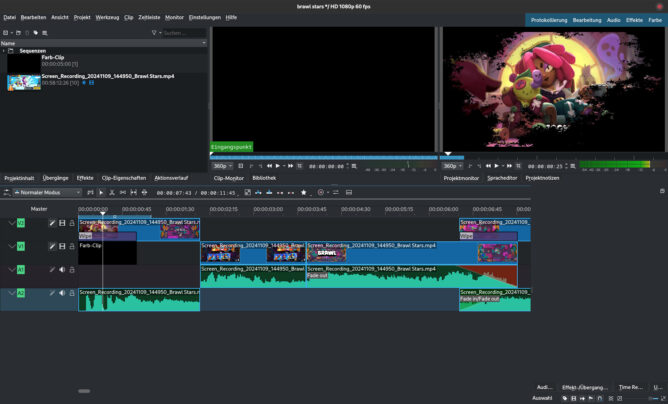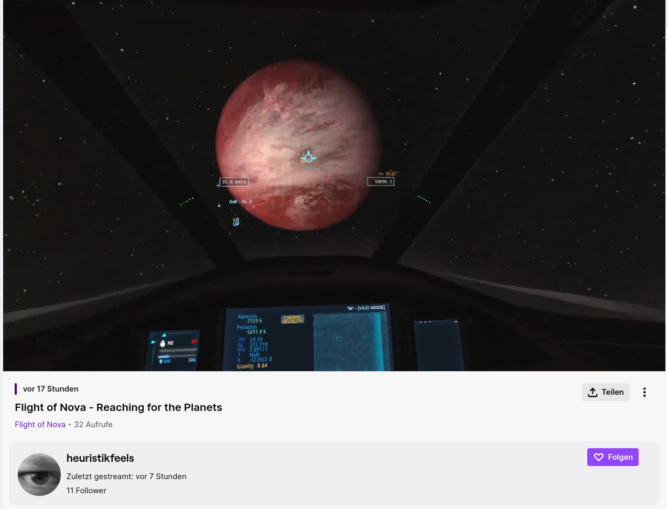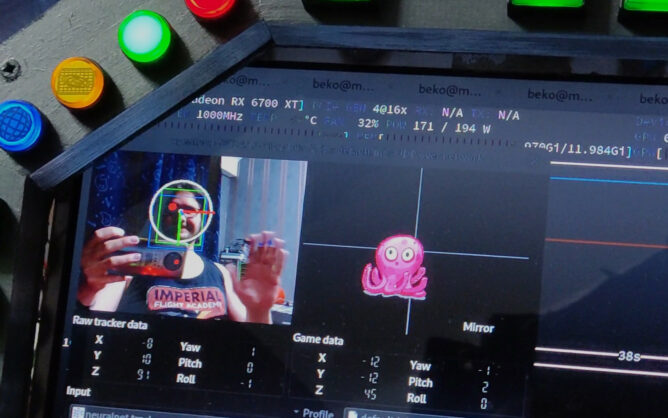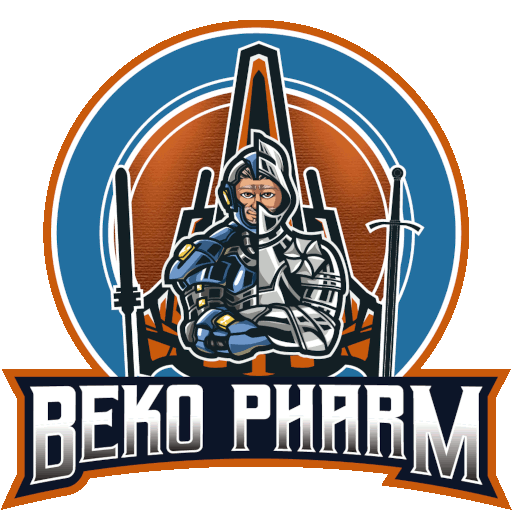Cat doing #cats things.
Category: Stuff
MH-Zombie

This one flew under my radar so far (haha, sorry):
Rescue the civilians, race the clock, and raze the enemy in MH-Zombie, the world’s only helicopter arcade simulator! Three flight physics modes, three difficulty modes, and a tutorial mode provide a stepped learning curve and wider accessibility to realistic helicopter flight.
https://store.steampowered.com/app/1429350/MHZombie
The reason this came to my attention is because it’s one of the few games that [just] implemented #headTracking via UDP e.g. available by #OpenTrack (and various others). This is great because it doesn’t force people to jump the hoops of #TrackIR, which is only supported for Windows and officially limited to their proprietary devices. See this in action at https://www.youtube.com/watch?v=jMGFdO7VXiY
Apparently it’s written for mobile games but runs on PC as well – that seems to include Linux PC which even makes this a #LinuxGaming title! 🤓
I don’t know about you but for 3 bucks I’ll totally get this for the occasional pew pew fun. Game seems to be a labour of love so sharing is highly appreciated.
Video editing with the little one

Today the little one asked about video editing again. She really wants to make videos. This isn’t the first time as well and I do remember her stop motion mini videos years ago. The new smart phone also has various recording and post production possibilities – albeit limited – that she is playing around with a lot lately using her own drawings.
This time she showed up with a game recording where she played some mobile game together with a school friend. They used Signal and headphones for voice and played together via internet while her phone recorded all of this.
So we talked a lot about a typical video editing process, resolutions, screen ratios, audio tracks and effects and eventually we sat down at the PC and edited a short clip in #kdenlive to demonstrate all of this. In the end she suffered from a slight “buffer overflow” so we had to stop but not before rendering out a tiny video that she is showing around to her friends now.
I wonder what will come of this.
I totally love this. So in Flight Of Nova some players noticed that some stars in the distance looked not like stars and started venturing out and after a 10h realtime flight they managed to crash on another planetary 😄
https://www.youtube.com/watch?v=Fih4peTebyk
This is the next attempt holding enough reaction mass back to survive re-entry and do a proper landing too.
I love this level of nerdism. And I so hope they get to name that bugger 😄

Wow. The peeps at #FlightOfNova “found” a planet and reached it live on Twitch after a ~10h flight: https://www.twitch.tv/videos/2294019904
Insane 🤓 😍
I so hope that the player “Heuristik” gets to name that bugger 🤣
I totally missed the memo but apparently there is a Linux version of #GameGlass for a while now: https://support.gameglass.gg/en/articles/9351904-installing-gameglass-hub-on-linux
* Ubuntu 22.04+
* Linux Mint 21.2+
* Fedora 39+
Not a fan of GameGlass (I prefer my switches and dials, as you may know) but it’s probably of interest for other #homeCockpit builders.
#SimPit #Gaming #GamingOnLinux #LinuxGaming #StarCitizen #EliteDangerous

This works way better than I expected. This is a static image test for a HUD on my home cockpit using a dead cheap beamsplitter made of plexiglass and a smartphone o0

It has been a while that I tried #StarCitizen. With the new #Neuralnet Tracker plugin (AI haha) for #OpenTrack we get head tracking without annoying IR LEDs or reflecting stripes just by reading the webcam video feed. This is apparently fast enough to try #headTracking without a dedicated #headTracker nowadays. And all that on a #Linux PC. Took some fiddling but the concept still works. What a time to be alive.
Demo: https://makertube.net/w/groS1wpAhP8XYE75vJwX32

News from the #HobbyArcheology department. I have absolutely no clue what I found this time so I’ll go with “probably something religious”.

Getting better in #FlightOfNova 💪 Delivery mission without breaking… much 🤡
Man… I need telemetry data for this game. That’d be so freakin awesome 🤓


